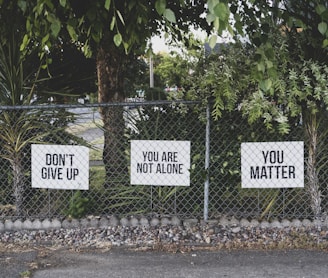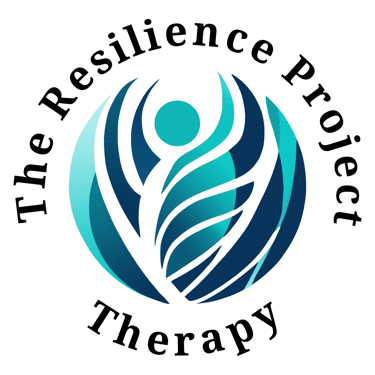Why Mental Health Awareness Matters
Understanding mental health needs and what you can do to help decrease the stigma.
Christian Gray Hering, LCSW
7/7/20235 min read


As a therapist, I often witness the impact of mental health issues on my clients and their loved ones. These issues are common and affect millions of people around the world. However, many people still face stigma, discrimination, and barriers to accessing quality care and support.
That's why mental health awareness is so important. Mental health awareness is the ongoing effort to reduce the stigma around mental health issues and promote understanding, compassion, and help-seeking among people who experience them.
In this blog post, I will explain why mental health awareness matters and how you can get involved.
What is Mental Health?
Mental health is a state of well-being in which you can cope with the normal stresses of life, work productively, and make a positive contribution to your community¹. Mental health is not just the absence of mental illness. It is a dynamic and holistic concept that encompasses your emotional, psychological, spiritual, and social well-being.
Mental health can be influenced by various factors, such as genetics, life experiences, environment, culture, and personal choices. Mental health can change over time and across different situations. Everyone has ups and downs in their mental health, but some people may experience more challenges than others.
What are Mental Health Issues?
Mental health issues are conditions that affect your mood, thinking, behavior, or functioning². They can range from mild to severe and can interfere with your daily life and well-being. Some of the most common mental health issues are:
Depression: A mood disorder that causes persistent feelings of sadness, hopelessness, or loss of interest in activities that you used to enjoy (often called Anhedonia).
Anxiety: A group of disorders that cause excessive fear, nervousness, or worry about various aspects of your life, such as health, work, social situations, or specific objects or events.
Bipolar Disorder: A mood disorder that causes alternating episodes of extreme highs (mania) and lows (depression) that affect your energy, activity level, judgment, and behavior.
Post-Traumatic Stress Disorder (PTSD): A disorder that develops after experiencing or witnessing a traumatic event that involved actual or threatened death, injury, or violence. It causes symptoms such as flashbacks, nightmares, avoidance, hypervigilance, and/or negative mood.
Obsessive-Compulsive Disorder (OCD): A disorder that causes recurrent and intrusive thoughts (obsessions) that cause anxiety and repetitive behaviors (compulsions) that you feel compelled to perform to reduce the anxiety.
Schizophrenia: A disorder that affects how you perceive reality and relate to others. It causes symptoms such as hallucinations (seeing or hearing things that are not there), delusions (false beliefs that are not based on reality), disorganized speech or behavior, or reduced motivation or emotion.
Mental health issues can affect anyone regardless of age, gender, race, ethnicity, culture, religion, or socioeconomic status. They are not a sign of weakness or a character flaw. They are treatable conditions that can be managed with appropriate care and support.
Why is Mental Health Awareness Important?
Mental health awareness is important for several reasons:
It reduces stigma and discrimination. Stigma is a negative attitude or judgment toward people who have mental health issues. Discrimination is a negative action or treatment toward people who have mental health issues. Stigma and discrimination can prevent people from seeking help, accessing services, finding employment, maintaining relationships, or enjoying their rights. Mental health awareness can help challenge the myths, stereotypes, and prejudices that fuel stigma and discrimination. It can also help promote respect, inclusion, and equality for people who have mental health issues.
It increases knowledge and understanding. Many people lack accurate information about mental health issues and their causes, symptoms, treatments, and outcomes. This can lead to misconceptions, fears, or biases that affect how they perceive themselves or others who have mental health issues. Mental health awareness can help educate people about the facts, realities, and experiences of mental health issues. It can also help raise awareness of the risk factors, protective factors, and prevention strategies for mental health issues.
It encourages help-seeking and support. Many people who have mental health issues do not seek help or receive adequate care for various reasons, such as stigma, shame, denial, lack of awareness, cost, or availability of services. This can result in worsening symptoms, complications, or negative consequences for their physical, social, and economic well-being. Mental health awareness can help motivate people who have mental health issues to seek help early and access appropriate services. It can also help empower people who have mental health issues to advocate for their needs and rights. Moreover, mental health awareness can help foster a supportive environment for people who have mental health issues by encouraging empathy, compassion, and solidarity among family members, friends, co-workers, professionals, and communities.
How Can You Get Involved in Mental Health Awareness?
There are many ways you can get involved in mental health awareness and make a difference in your own life and the lives of others. Here are some suggestions:
Learn more about mental health issues and share your knowledge with others. You can find reliable information online³ , in books⁴, or from your therapist. You can also attend workshops, seminars, webinars, or courses on mental health topics.
Share your own story or listen to others' stories of living with mental health issues. You can use social media platforms, blogs, podcasts, videos, books, or public speaking opportunities to share your personal experiences of mental health issues. You can also listen to others' stories through these channels or by joining support groups or peer networks. Sharing and listening to stories can help reduce stigma, increase empathy, inspire hope, and create connections.
Support mental health organizations or initiatives in your area. You can donate money, volunteer time, participate in events, sign petitions, join campaigns, or advocate for policies that support mental health causes. You can also support organizations or initiatives that address the social determinants of mental health, such as poverty, homelessness, violence, racism, discrimination, or human rights violations.
Take care of your own mental health and well-being. You can practice self-care strategies such as eating well-balanced meals, getting enough sleep, exercising regularly, managing stress, engaging in enjoyable activities, seeking support, expressing gratitude, practicing mindfulness, or seeking professional help if needed. Taking care of your own mental health can help you cope with challenges, improve your mood, and enhance your quality of life.
Last Thoughts
Mental health awareness is an important initiative to improve the understanding, acceptance, and treatment of mental health issues. It can benefit not only people who have mental health issues but also their families, friends, co-workers, professionals, and communities.
As a therapist, I encourage you to get involved in mental health awareness in any way you can. You may be surprised by how much you learn, how much you grow, and how much you contribute.
(1) About Mental Health - Centers for Disease Control and Prevention. https://www.cdc.gov/mentalhealth/learn/index.htm.
(2) Mental Health | CDC - Centers for Disease Control and Prevention. https://www.cdc.gov/mentalhealth/index.htm.
(3) Mental health awareness: The importance of conversation - BetterUp. https://www.betterup.com/blog/mental-health-awareness.
(4) The Importance of Mental Health Awareness Month | Lifespan. https://www.lifespan.org/lifespan-living/importance-mental-health-awareness-month.
The Resilience Project Therapy
Mailing
P.O. Box 832182
Richardson, TX 75083
Contacts








